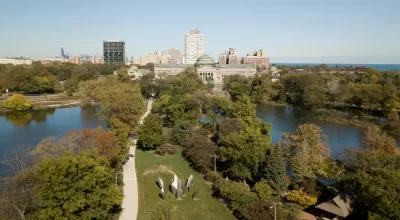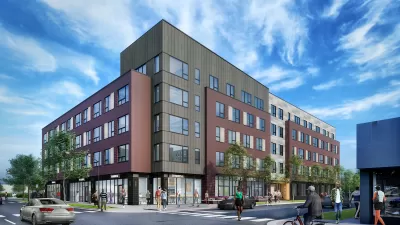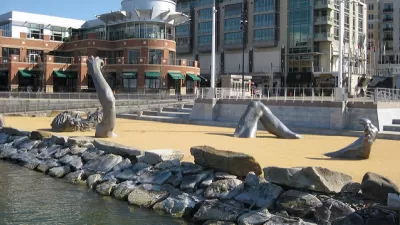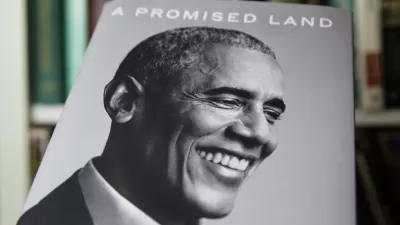The Chicago City Council has approved an ordinance intended to protect residents of the neighborhoods surrounding the planned Barack Obama Presidential Center.

Fran Speilam reports on the latest in the ongoing controversies surrounding the Barack Obama Presidential Center, planned for a location in Jackson Park on the South Side of Chicago. Included among the controversies still dogging the project are the concerns of residents who see the development as a harbinger of higher housing prices, gentrification, and displacement.
Spielman rehashes the history of this controversy as follows:
Four months ago, Woodlawn residents fearful of being displaced by the Obama Presidential Center in Jackson Park staged a day-long sit-in outside the mayor’s office to pressure Mayor Lori Lightfoot to deliver the community benefits ordinance she promised during the campaign.
They turned up the heat on City Hall in June by building a tent city in a vacant Woodlawn lot.
Despite those protests, Spielman says the ordinance approved recently by the Chicago City Council falls short of the demands of these residents. The Woodlawn Housing Preservation ordinance, as it's called, "sets aside $4.5 million for an array of affordable housing programs in the neighborhood surrounding the Obama Presidential Center and establish affordability requirements for 30 percent of new housing units built on 52 of the 208 vacant Woodlawn lots owned by the city," explains Spielman.
"The city will offer more financial assistance to landlords who agree to purchase or refinance multi-family resident [sic] buildings and maintain those units as affordable for 30 years," adds Spielman. More details of the ordinance, and how it fell short of the demands of local advocates, are included in the source article.
FULL STORY: City Council approves protections for Obama Center’s neighbors, tightens regulations on vacation rentals

Planetizen Federal Action Tracker
A weekly monitor of how Trump’s orders and actions are impacting planners and planning in America.

Restaurant Patios Were a Pandemic Win — Why Were They so Hard to Keep?
Social distancing requirements and changes in travel patterns prompted cities to pilot new uses for street and sidewalk space. Then it got complicated.

Maui's Vacation Rental Debate Turns Ugly
Verbal attacks, misinformation campaigns and fistfights plague a high-stakes debate to convert thousands of vacation rentals into long-term housing.

In California Battle of Housing vs. Environment, Housing Just Won
A new state law significantly limits the power of CEQA, an environmental review law that served as a powerful tool for blocking new development.

Boulder Eliminates Parking Minimums Citywide
Officials estimate the cost of building a single underground parking space at up to $100,000.

Orange County, Florida Adopts Largest US “Sprawl Repair” Code
The ‘Orange Code’ seeks to rectify decades of sprawl-inducing, car-oriented development.
Urban Design for Planners 1: Software Tools
This six-course series explores essential urban design concepts using open source software and equips planners with the tools they need to participate fully in the urban design process.
Planning for Universal Design
Learn the tools for implementing Universal Design in planning regulations.
Heyer Gruel & Associates PA
JM Goldson LLC
Custer County Colorado
City of Camden Redevelopment Agency
City of Astoria
Transportation Research & Education Center (TREC) at Portland State University
Jefferson Parish Government
Camden Redevelopment Agency
City of Claremont





























